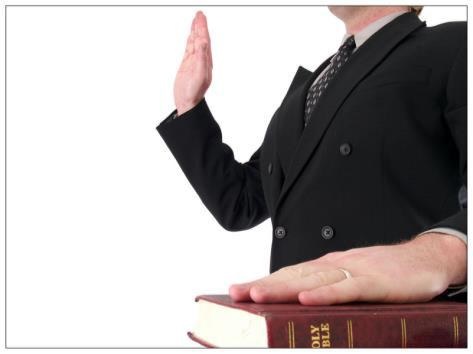
WHAT IS TRIAL? – A BRIEF DESCRIPTION
Once your case is actually called for Trial, the case will progress through several stages. Clients usually know that their lawyer is going to argue, the other sides lawyer is going to argue, and that the jury is going to make a decision. They also know that they may have to testify, but I often find they know little else about what occurs.
Pre-Trial Motions. These motions can take a variety of forms and concern a variety of issues. Sometimes, the lawyers are trying to argue the exclusion of certain witnesses. Most of the time, they are trying to argue the exclusion of certain evidence or the mention of certain facts to the jury. These are called Motions in Limine, and are designed to prevent either side from mentioning or eliciting testimony concerning issues and circumstances that should not be considered by the jury. The reason lawyers make these motions instead of just waiting to yell out “Objection!” in the middle of testimony is that these motions are often based on items that are thought to be so prejudicial to one side or another that the jury will find them hard to forget and be influenced by them even if the objection is sustained. The Court’s rulings on these motions can have a huge impact on your case and generally the case that is presented to a jury is not what you think it will be and the “full story,” but very specific parts with very specific exclusions.
Voir Dire. Voir dire is the jury selection process. Judges have their own systems and styles for selecting a jury. The folks called for jury duty will be brought into the courtroom and both sides and/or the judge will question prospective jurors. Lawyers may seek to excuse certain jurors for cause, meaning that they feel the juror has demonstrated that they cannot be fair or cannot follow the law. There are an unlimited number of challenges a lawyer can make “for cause” and the judge will rule on these challenges. The lawyers may also seek to excuse certain jurors for other reasons. It could be they said something the lawyer doesn’t like for the case. These are called peremptory challenges; those in which the lawyer can excuse a juror for any reason, and each lawyer has three to four of these challenges per case depending on the Court. The judge has wide discretion on how to let jury selection proceed.
Opening Statements. After the jury is selected and sworn in (empaneled), lawyers for both sides will present an opening statement to the jury. Some people call this “opening arguments,” but that term is misleading as an opening statement is meant to be a forecast of what the lawyer thinks the evidence will show, and not an argument or analysis of the facts and law.
Plaintiff’s Evidence. After opening statements, the plaintiff will present their evidence to the jury. This will take the form of admitting documents, photographs, and other items into the court’s record and will also include calling witnesses to testify. This may include the Plaintiff, the plaintiff’s agents, witnesses and experts, etc.
Defendant’s Evidence. After the plaintiff rests their case (meaning they are done presenting their evidence), the defendant will put on their evidence.
Charge Conference. Usually after both sides have presented their evidence, the jury will be sent out of the courtroom and the judge will hold a charge conference. Both sides will confer with the judge on what law the jury should be instructed on at the end of the case.
Closing Arguments. The jury is brought back into the courtroom and both lawyers give their closing arguments to the jury. Attorneys have wide latitude when making their closing arguments, but are prohibited from becoming abusive during arguments.
Jury Instructions (Jury Charge). After closing arguments, the judge will read the instructions of law decided upon in the charge conference to the jury.
Jury Deliberations. The jury is sent back to the jury room and will select a foreperson. The jury will then begin their deliberations on the issues of the case.
After the jury reaches a verdict, it will be announced by the Clerk and recorded. A judgment will then be entered and the case is over unless grounds for appeal have arisen throughout the course of the Trial.
There are also motions that are made a various stages of a Trial, such as a motion of directed verdict. These motions are often routinely made not because there is substance behind the motion, but rather because the motion is required to be made at the close of both side’s evidence in order to preserve the defendant’s right to appeal in certain instances.
GETTING READY FOR A TRIAL OR TRIAL TESTIMONY
PREPARATION STEPS:
- Thoroughly read through this document and make certain that you comprehend it in its full entirety. If you have any questions with regards to it, rest assured that your attorneys and our staff are here to assist in any way possible and in order to provide you with a more detailed explanation of anything contained herein or an answer to specific questions or concerns. Please call us with any questions or concerns and note that we will likely be working late and on the weekends to prepare for Trial.
- Review the Interrogatories and/or deposition transcripts that you previously provided as the other counsel will more than likely try to use them against you in cross examination. Therefore, we want to make sure that your answers completely match and/or that you have a good explanation for any changes in your testimony.
- Review the Pleadings, Motions and any expert reports that were previously filed and contact your attorney should any questions come to mind.
Your attorney and/or our staff will want to meet with you either in person or telephonically before your Trial to properly prepare you. Do not hide anything from your attorney. You must be totally truthful with your attorney and that includes his/her staff as you will not be fully protected if there are things that the other side may know that your attorney and/or his/her staff has not been made aware of before the scheduled Trial. Be candid in all respects and rest assured that everything you tell your attorney and/or his/her staff is ATTORNEY CLIENT PRIVILEGED & CONFIDENTIAL.
Think of any bad information about the case and assume that the other side is aware of this information and advise your attorney of same about it. If we know about something we can discuss it and strategize how best to move forward to protect you.
TESTIMONY “DO’s & DON’Ts”
ATTIRE: Dress neatly. The best outfit is comfortable business attire. With nothing flashy, nothing offbeat, nothing dirty, nothing sloppy. Remember, the members of the jury, the judge and the other attorneys are evaluation you as a witness and what type of impression you make.
RESPONSES: It is imperative that you answer every question truthfully. Prior to answering a question, look straight at the attorney asking the question, listen carefully, pause at least two or three seconds to think, and then give your short, concise answer politely and calmly. For the majority of the questions, “yes sir,” “no sir” or “I don’t know” is sufficient. If you speak more than three sentences, you have probably said too much. Remember to use this tactic with each and every question so that every answer is formal and controlled.
CONDUCT: Always try to be polite. Your conduct and demeanor may be more important than the answers you give so maintain your composure by remaining calm and not demonstrating a sense of nervousness. (You will likely be nervous, just try to not show it.) Always respond courteously by referring to the attorneys as “Mr.” or “Ms.” Please be sure to speak up positively and with assurance.
QUESTIONS: Feel free to consult with your attorney if you want to take a break or something is going on that you do not understand. During Trial you can write notes to your attorney and sometimes questions to ask witnesses. Do not be afraid to ask your attorney questions, but keep consultations to an absolute minimum and remember that others inside or outside the courtroom may hear you. Your attorney cannot tell you how to answer a question and you must answer a question. Even if your attorney knows an answer, the attorney cannot answer on your behalf.
HONESTY IS THE BEST POLICY: Your testimony must be truthful. Guessing or speculating is not truthful Please remember, tell the truth, the whole truth, and nothing but the truth, but only in response to questions, and with short answers. If you do not tell the truth, you could be subject to criminal prosecution for perjury. If you are caught not telling the truth – even if this is unintentional, your credibility will be put into question whilst damaging your case. Again, every question must be answered truthfully.
LESS IS BEST: Answer only from your personal knowledge. Never volunteer an opinion unless specifically asked to do so. Never guess or speculate. Guessing or speculating is not truthful. Do not do it. Don’t allow for the opposing counsel to fool you into making statements outside of your personal knowledge or about something you do not remember.
TESTIMONY: It is important that you provide a testimony in your own words. Do not let opposing counsel put words in your mouth. Stay with the version of the facts as you know them. One of the tactics used by attorneys is “Well, is it fair to say that…?” If he/she uses this tactic and attempts to summarize parts of your testimony, listen carefully and do not agree unless it is exactly true in all respects; if not, state that you do not agree with his/her summary.
ZERO INTIMIDATION: Do not allow yourself to be intimidated. The opposing attorney may make an insinuation or express an opinion that you are not telling the truth. This is an old trick and you should not fall for it. He/she may say something in lines of, “Do you mean to tell me that you are willing to sit here under oath and swear to that?” Remain calm; look him/her in the eyes and say, “I have just testified to the fact under oath.”
CAUTION OF QUESTIONS ASKED: Be careful of questions dependent of your memory. If you are asked about something that happened long ago and you do not remember the date or time, just say so and do not guess. No one expects for you to recall every facet of your life. If you are pressed for dates, you can reply, “To the best of my knowledge, it was around that time.” If you do not recall, say so. Often, the truthful answer to a question begins with “To the best of my knowledge, at this time.” If you do not know, say so. Again, do not speculate and do not guess. If you do not know the answer to a question, just say “I do not know.” Please comprehend that it is quite important that you do not assume anything. Old tricks in the book are often used by opposing counsel. One such trick includes him/her pulling out a piece of paper, reading it to himself/herself and then asking you if you recall writing a letter to [NAME] that said [FACTS]. Do not be fooled into admitting something of which you are unsure of. Do not say, “I guess so” when the truthful answer is “I do not remember writing such a letter.”
KEEP IT SHORT & SWEET: Do not give long, rambling answers. The opposing attorney will always gain an advantage if you talk too much. Never ask to explain your answer before giving it. And do not explain your proper “yes sir” or “no sir” answer either. Do not ever volunteer unsolicited information. For example, you are asked to “State the highest degree of education you have earned.” Many witnesses respond: “Well I graduated high school and then went to college for two years.” This is volunteering information. The correct answer is: “a high school diploma.” No matter how harmless it may seem, you will hurt your case and strengthen the other side’s if you volunteer information.
Do not give an opinion unless asked. Answer with facts and never give your opinion or belief unless asked for it. Again, this is volunteering information and doing same can hurt your case.
Complete your answers. If you do not have a long answer, and the other attorney interrupts you when providing your response, you should politely insist on finishing your entire answer. Just state that you were not through and insist on being allowed to finish it.
HANDLE WITH CARE: Use care with documents. If you are asked about a certain document, you should ask to see it before answering. Never refer to a document to refresh your memory without first discussing it with your attorney. In some states, if a deponent is asked a question and stops to look at a document to refresh his/her memory, the document must be disclosed even if it is privileged.
STAY ALERT: Always keep your guard up. Everyone gets nervous when providing testimony. It is only natural. Sometimes a deponent will begin to relax as the Trial progresses and they may even actually enjoy being the center of attention. Avoid this feeling. It is dangerous and leads to your forgetting the rules outlined in this article.
Remain alert, be on guard, sit up straight, and remember to:
- Look and listen, Pause and think; and Answer briefly.
KEEP CALM: In order to avoid having the opposing counsel talk you into hurting your case, it is best to remain being polite, courteous and keeping your guard up. Do not allow yourself to be provoked, angered, or becoming upset.
Please remember that nothing is “off the record” during the course of the Trial. The Court Reporter is present to take down every word. The only thing off the record will be discussion among attorneys when the reporter has been instructed to stop recording. Moreover, you never know who is in the Court House, who is a juror or who might be working for the other side.
We hope that this guide has been able to assist you in preparation for your Trial or Trial Testimony. Should you have any questions pertaining to your Trial or Trial Testimony or if there is something that you think we should be aware of in any documents or previous testimony provided, please do not hesitate to contact us and we will make every effort to provide additional clarification.



